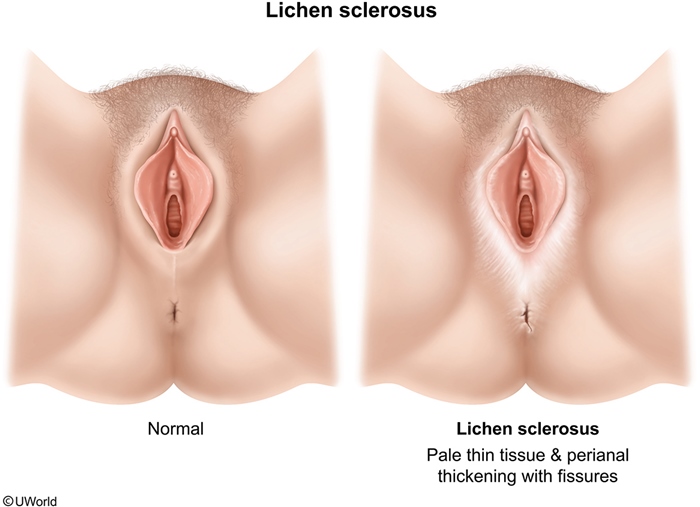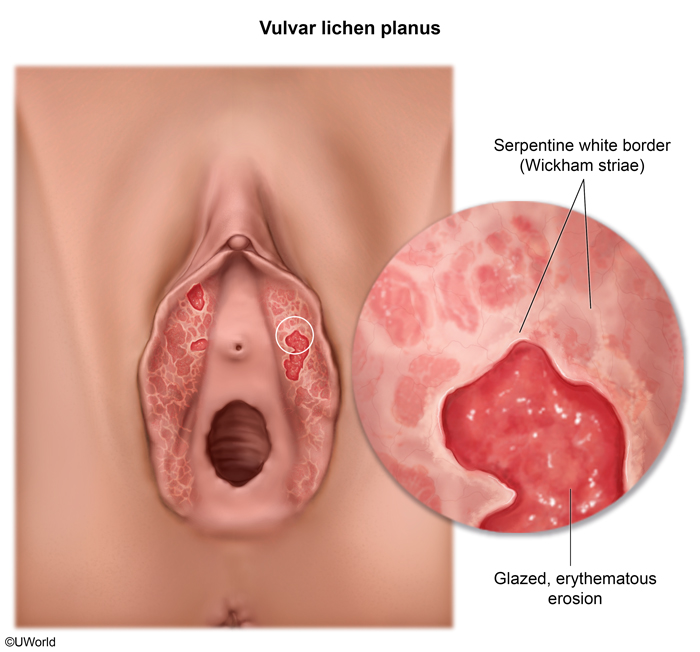Genitourinary Syndrome Of Menopause
Article Sections
Introduction
Genitourinary syndrome of menopause (GSM), previously known as vulvovaginal atrophy, is a condition characterized by thinning, drying, and inflammation of the vulva, labia, vaginal introitus, urethra, and bladder due to low estrogen levels.
Pathophysiology and risk factors
Estrogen plays a critical role in maintaining the thickness, elasticity, and lubrication of the vaginal epithelium. In addition, it stimulates proliferation of the vaginal epithelium, promotes glycogen deposition, and helps maintain the acidic pH of the vagina through the metobolic action of normal vaginal flora (ie, lactobacilli).
In patients with GSM, reduced estrogen levels associated with menopause cause decreased blood flow and reduced collagen and glycogen content in vulvovaginal tissues. This condition results in thin vulvar skin with reduced elasticity and loss of vaginal tissue pliability that cause
Continue Learning with UWorld
Get the full Genitourinary Syndrome Of Menopause article plus rich visuals, real-world cases, and in-depth insights from medical experts, all available through the UWorld Medical Library.
Unlock Full AccessFigures

